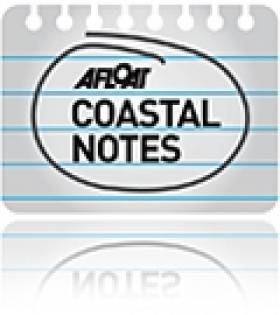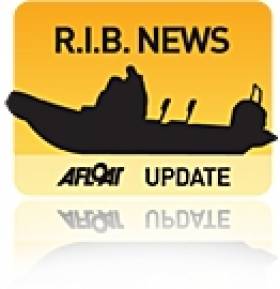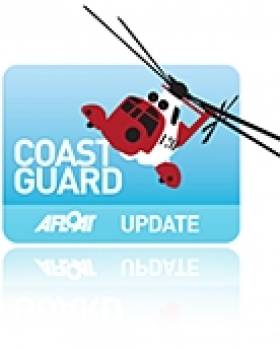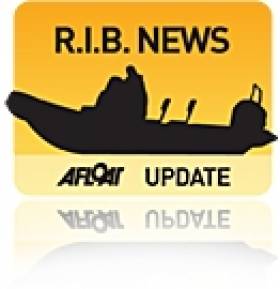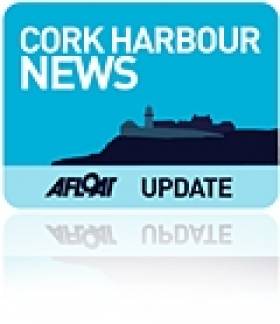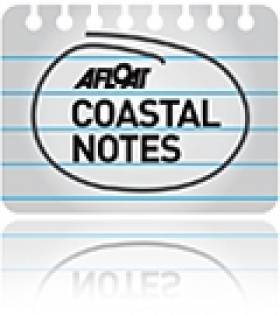Displaying items by tag: Rib
Police Seek Help from Northern Ireland's Coastal Communities
Project Kraken is a UK-wide campaign which aims to increase vigilance along the coastline and encourage the community to work together to help combat any criminal or terrorist activity.
Inspector David Connery explains: "We're encouraging those living by the coast and members of the maritime community to look out for any suspicious activity and report it to the police immediately so that we can take action if necessary.
"Beaches, marinas and harbours can be uncomplicated points of entry into Northern Ireland and police rely on members of the public to make us aware of anything untoward.
"Please contact police immediately if you find:
Unusual boat movements late at night or early in the morning.
People being landed at unusual locations.
People not knowing about boat handling.
People with inadequate dress for sailing.
Boats moving around at night time with no navigational lighting.
RIBS being loaded / unloaded at unusual times.
RIBS being loaded / unloaded at unusual places.
Packages being transferred out at sea from larger boats.
Packages being transferred to waiting cars.
Strangers acting suspiciously within the marina.
Strangers wanting to hire boats.
Boats with extra fuel tanks.
Boats with above average crew for the size of boat.
"If you notice anything suspicious or unusual please never involve yourself or touch any suspicious packages. Make a note of any registration numbers, markings or descriptions, and call your local police on 0845 600 8000. If the situation requires an emergency response, call 999.
"If someone would prefer to provide information without giving their details, they can contact the independent charity Crimestoppers and speak to them anonymously on 0800 555 111," Inspector Connery added.
Police are also encouraging local boat owners to register their vessels with the PSNI Ports Unit. This means that in the event of a theft, the rightful owners of the boat can be identified more quickly. Forms can be found on www.psni.police.uk or please contact the PSNI Ports Unit on 0845 600 8000.
Rib Run from Kinsale to Wales Scheduled for May 5th
The eighth annual Kinsale Rib Run in aid of the RNLI takes place between 5th and 8th May 2011 to Aberystwyth in Wales. The first general crew meeting will take place in the Trident Hotel on Wednesday 23rd March at 8pm. More HERE.
Two Investigations Underway into Weekend Boating Accident
Gardai launched a full investigation into the weekend boating tragedy where two men died in Inishboffin harbour.The men were identified locally as former Mayo footballer, Ger Feeney, and businessman, Donal McEllin, both from Castlebar.
It is understood the pair left the island by small RIB to travel back to their motor cruiser some time after midnight on Saturday and are both thought to have been wearing lifejackets when they set out.A second investigation is also to be carried out by officers of the Marine Casualty Investigation Board (MCIB).
More here:
Ex-GAA star dies in double drowning tragedy off island
Two men drowned off Inishbofin
Castlebar in shock as Inishbofin victims are named
Related Safety posts
RNLI Lifeboats in Ireland
Safety News
Rescue News from RNLI Lifeboats in Ireland
Coast Guard News from Ireland
Water Safety News from Ireland
Marine Casualty Investigation Board News
Marine Warnings
Concern for RIB on Passage from Rathlin to Bangor
Concern for the occupants of the 8 metre RIB was initially raised when it was reported that it had left Rathlin harbour at 6.00pm in adverse weather conditions. Belfast Coastguard attempted to contact the vessel on VHF radio and mobile telephone but were unsuccessful.
Further enquiries yielded that the RIB was suspected to be heading to Bangor Harbour, and so Belfast Coastguard sent the Bangor Coastguard Rescue Team out to see if they could sight the vessel. In the meantime, Belfast Coastguard intercepted a communication from the RIB to Clyde Coastguard, whom they had contacted to inform them that they were just entering Bangor Harbour, in line with their passage plans.
In order to ensure they had safely arrived, Belfast Coastguard completed a radar search for the vessel and discovered that the occupants of the RIB were incorrect about their location, and had in fact just entered Belfast Lough, 13 miles from where they thought they were.
Belfast Coastguard finally managed to make communication with the RIB and ensured that they had sufficient fuel to complete their journey to Bangor. When the RIB arrived in Bangor they were met by the Bangor Coastguard Rescue Team who ensured they were safe and well and offered some safety advice.
Belfast Coastguard Watch Manager Alan Pritchard said:
"We became immediately concerned for the safety of the occupants of the RIB when we were informed that they were heading out in such poor weather conditions, and our worries increased when it became apparent that they had no idea of their position and began heading into the wrong port. The occupants of the RIB are now safely ashore and although were not in need of medical assistance they were quite badly shaken from the experience as it transpires that they had been trying to reach Bangor for several hours.
When we are informed of incidents such as these it allows the Coastguard to play a proactive role in preventing a situation from worsening by monitoring a vessel's passage. However, this could have all been prevented by the crew preparing for their journey, advising the Coastguard of their intentions and being aware of their own capabilities and weather conditions."
Fancy a New RIB? Here's Your Chance....
The firm will have special offers on selected models to beat the UK's VAT rise.
Sea trials and demos will be available across the firm's Stormforce range as well as a wide range of secondhand boats on display
A 'self-righting' demonstration on the latest Stormforce 650 is also promised. This boat is fitted with twin Suzuki DF90's with immersion proof hoods.
Demo's will be available on each of the boats at the following time slots on Saturday and Sunday:
11:00 - 13:00 6.1 - 650
14:00 - 16:00 7.4 - 8.4
16:00 - 18:00 1050 - 11
If you would like to book a demo on one of these boats please contact Red Bay on 028 2177 1331 or email [email protected]
65–Knot RIB for Cork Harbour Open Day
Further free family events are planned to take place around the harbour as part of Cork Harbour Open Day, such as the World Rescue Challenge on North Custom House Quay, the Irish Navy's LE Aoife will be open to the public for tours of the ship on Horgan's Quay, Cobh Tourism have organised a crab fishing event along the promenade in Cobh, while ten free tickets for a tour on Spike Island are being given away by tour guide Michael Martin, see www.corkharbour.ie for more details.
In Crosshaven there will be farmers markets, coastal rowing championships, Camden Fort will be open to the public and an art exhibition by John Adams in mad Fish Restaurant, Cronin's pub. Crosshaven RNLI Station will be open to the public and the RNLI will also be carrying out free Sea Safety checks on lifejackets throughout the day at the Port of Cork City Marina. While in Cobh the annual Cobh to Blackrock sailing race will start at 12 noon from Cobh.
Blackrock Castle Observatory will be open to the public for free tours of the tower, where people will get a bird's eye view of the boats as they pass Blackrock. Spectators are encouraged to come out and watch the boats as they race up to Blackrock and continue on to the Port of Cork City Marina. Atlantic Sea Kayaking are also offering a 2 for 1 deal for kayaking on the river Lee during the day.
Aimed at embracing what Cork Harbour has to offer, the Cork Harbour Open Day aims to raise awareness of the different activities available for people in the harbour both on and off the water.
The idea for a Harbour Open Day emerged from discussions between various stakeholders involved in the development and implementation of the Integrated Strategy for the Harbour. A group comprising representatives from UCC, City and County Councils and the Port of Cork set about working together to engage users of the Harbour and to organise the Open Day.
To get involved in Cork Harbour Open Day or to organise an event on the day, please visit www.corkharbour.ie or contact Sara Dymond at [email protected] or 021-4625375.
What: Cork Harbour Open Day
When: Saturday 4th September 2009
Where: Various locations around Cork Harbour
Info: www.corkharbour.ie
New Cork Chart for RIBs
Admiralty Leisure, which is part of the UK Hydrographic Office is currently expanding the range of Tough Charts and the latest to be published is a Tough Chart of Cork to Kinsale which will be available next month.
The new Tough Chart (SC5915) provides coverage from Cork to Kinsale at various scales, including major rivers and estuaries printed on 16in the form of 14 robust and durable pages, all are referred to WGS84. Also included is a comprehensive index diagram based on a Standard Nautical Chart detailing coverage of this product. The product has been designed specifically for the Rigid Inflatable Boat (RIB), dinghy and wet boat enthusiast, it is also great for use on deck on any vessel sailing or racing in the area. This new Tough Chart will make the ideal accompaniment to those competing in Cork Week. Check out Afloat TVs high definition footage of this beautiful coastline below.


























